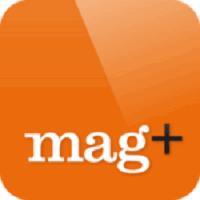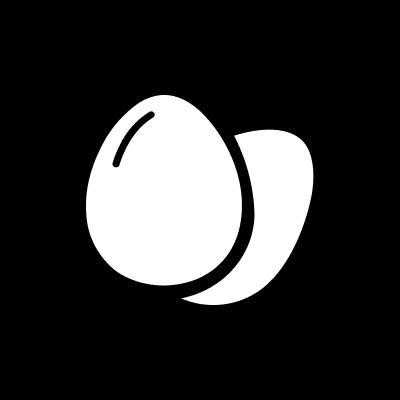Description

Artifactory

Pega 7 App
Comprehensive Overview: Artifactory vs Pega 7 App
Artifactory Overview
a) Primary Functions and Target Markets: Artifactory is a repository manager developed by JFrog. It acts as a central hub for storing and managing binary artifacts used in software development. The key functions include:
- Dependency Management: Facilitates storage and retrieval of build artifacts for continuous integration and delivery (CI/CD).
- Universal Artifact Repository: Supports numerous package formats including Docker, Maven, npm, PyPI, and more.
- Security and Compliance: Offers tools to scan for vulnerabilities and manage licenses across different artifacts.
- Integration: Provides integrations with various CI/CD tools like Jenkins, CircleCI, and others.
Target Market: Artifactory is geared towards medium to large enterprises that require robust solutions for managing complex software development pipelines. It's highly appealing to organizations embracing DevOps practices.
b) Market Share and User Base: Artifactory is a lead player in the artifact repository market. With heightened demand for CI/CD solutions, its user base is significant, especially among enterprises deploying cloud-native applications and adopting DevOps methodologies. Precise market share figures fluctuate, but JFrog has shown consistent growth indicative of its strong presence.
c) Key Differentiating Factors:
- Universality: Artifactory’s ability to handle numerous artifact formats makes it highly versatile.
- Integration Capabilities: Seamless integration with a plethora of tools and compatibility with multiple cloud services.
- Mature Ecosystem: JFrog’s ecosystem around Artifactory, including additional products like Xray for security, enhances its value proposition.
Pega 7 Application Overview
a) Primary Functions and Target Markets: Pega 7, developed by Pegasystems, is a Business Process Management (BPM) and Customer Relationship Management (CRM) platform. Key functions include:
- Workflow Automation: Enables modeling, execution, and optimization of business processes.
- Case Management: Allows users to manage complex work by breaking it down into cases.
- Artificial Intelligence: Integrates AI for decision-making processes within business applications.
- Low-Code Development: Provides tools for building applications with minimal coding.
Target Market: Pega 7 targets large enterprises across industries such as finance, insurance, healthcare, and government, where process optimization and customer engagement are crucial.
b) Market Share and User Base: Pega is one of the leading vendors in the BPM and CRM market, competing with companies like Salesforce and IBM. Its strong focus on large, enterprise clients makes it a significant player, although precise market share varies.
c) Key Differentiating Factors:
- Scalability and Flexibility: Offers scalable solutions that can be tailored to a wide range of industries.
- Unified Platform: Combines BPM and CRM capabilities into a single platform, enhancing its appeal.
- AI and Decisioning: Incorporates AI for real-time decisioning, setting it apart in the automation space.
- Low-Code Robustness: Comprehensive low-code functionality to accelerate application development.
Comparative Overview
Market Position and User Base:
- Artifactory focuses on the domain of software development, particularly serving enterprises with DevOps adoption. Its market position is strong among organizations prioritizing CI/CD.
- Pega 7, on the other hand, serves broader enterprise needs across various industries, offering BPM and CRM solutions. Its presence is seen more in process automation and customer interaction spaces.
Key Differentiators:
- Artifactory differentiates itself through universal artifact management and integration capabilities within the CI/CD domain.
- Pega 7 is distinguished by its comprehensive approach to business process management and CRM, leveraging strong AI capabilities and a unified platform for end-to-end process automation and customer management.
In summary, while both target enterprise clients, Artifactory is more aligned with software development and DevOps practices, while Pega 7 focuses on business process optimization and customer management across varied industries.
Contact Info

Year founded :
Not Available
+1 603-298-6010
Not Available
Lithuania
Not Available

Year founded :
Not Available
Not Available
Not Available
Not Available
Not Available
Feature Similarity Breakdown: Artifactory, Pega 7 App
Artifactory and Pega 7 App serve very different purposes and are designed for different types of users. However, here is a comparison based on their core features, user interfaces, and unique features:
a) Core Features in Common
-
Version Control and Management:
- Both platforms handle version control, though in different contexts—Artifactory for software artifacts and Pega for processes and applications.
-
Security and Access Control:
- Both provide robust systems for user authentication, access controls, and role-based permissions.
-
Integration Capabilities:
- Both tools support integration with third-party systems and applications. Artifactory integrates with CI/CD tools, while Pega 7 supports integration with various enterprise systems and databases.
-
Scalability:
- Each is designed to support enterprise-scale applications, able to manage large volumes of data and users.
-
Automation:
- Automation is another common feature, where Artifactory automates software distribution and delivery, and Pega automates business workflows and processes.
b) Comparison of User Interfaces
-
Artifactory:
- Typically has a technical and command-line-oriented interface tailored to developers and DevOps professionals.
- Its UI focuses on artifact management, repository navigation, and integration settings.
-
Pega 7 App:
- Known for its model-driven, visual approach suited for business process management and case management.
- The interface is designed to be intuitive for business users, often employing drag-and-drop features for building processes and workflows.
c) Unique Features
-
Artifactory:
- Universal Artifact Repository: Supports all major build tools and package formats, making it versatile for managing dependencies.
- Binary Management: Offers extensive storage and management solutions for software packages across different platforms.
-
Pega 7 App:
- Business Process Management (BPM): Provides comprehensive BPM tools for designing, executing, monitoring, and optimizing business workflows.
- Case Management: Offers advanced case management features to handle complex, adaptive, and event-driven processes.
- AI and Decisioning Capabilities: Incorporates AI for predictive analytics and decision-making processes within workflows.
In summary, while Artifactory and Pega 7 share some enterprise-level capabilities, they are distinctly different in their primary functions. Artifactory is more development-oriented, focusing on artifact management, while Pega 7 is centered around process automation and management for business users.
Features

Not Available

Not Available
Best Fit Use Cases: Artifactory, Pega 7 App
Artifactory and Pega 7 App serve different purposes and fit well in distinct use cases based on their functionalities and features. Below, I describe the best fit use cases for each:
Artifactory
a) For what types of businesses or projects is Artifactory the best choice?
-
Software Development Companies: Artifactory is a universal repository manager that supports multiple package formats such as Maven, Npm, Docker, and many more. It is particularly advantageous for companies engaged in continuous integration and continuous deployment (CI/CD) workflows as it integrates with various CI/CD tools like Jenkins, Bamboo, and GitLab.
-
Enterprises with Demanding DevOps Practices: Organizations focusing on DevOps to enhance collaboration between development and operations teams benefit from Artifactory’s capabilities in version control, artifact lifecycle management, and dependency management.
-
Projects Requiring High Scalability and Security: Artifactory provides enterprise-grade features such as fine-grained access control, replication, and high availability, making it ideal for large-scale projects that require rigorous security measures and scalability.
-
Cloud-Native Projects: As Artifactory supports cloud environments, it is well-suited for businesses adopting cloud-native architecture. It provides a seamless experience in managing container images and other binaries necessary for cloud applications.
Pega 7 App
b) In what scenarios would Pega 7 App be the preferred option?
-
Customer-Centric Industries: Pega 7 excels in automating and streamlining customer engagement processes. It is suitable for industries like banking, insurance, healthcare, and telecommunications where customer relationship management is crucial.
-
Enterprises Focused on Business Process Management (BPM): Pega 7 is primarily a BPM and CRM platform that supports building scalable and flexible business applications with minimal coding. It is the preferred choice for businesses looking to automate their workflow and business processes efficiently.
-
Businesses Requiring Rapid Application Development (RAD): Pega allows for quick development cycles and easily adapts to changing business needs, making it an asset in environments demanding rapid prototyping and deployment.
-
Organizations Needing Advanced Analytics and Real-Time Decisioning: Pega 7’s ability to offer real-time insights and decision-making capabilities can be invaluable for businesses that rely heavily on data-driven strategies.
Industry Vertical and Company Size
d) How do these products cater to different industry verticals or company sizes?
-
Artifactory: Its flexibility and scalability make Artifactory suitable for various industry verticals, particularly in technology-heavy sectors like software development, telecommunications, and cloud service providers. It scales well with company size, from small startups looking to implement CI/CD to large enterprises with complex DevOps ecosystems.
-
Pega 7 App: Pega’s BPM and CRM functionalities cater to industries where customer interaction and process automation is key, such as finance, healthcare, and insurance. Pega can scale from medium to large enterprises, providing tailored solutions that adapt to complex business requirements and regulatory challenges specific to those industries.
Both Artifactory and Pega 7 offer robust solutions in their respective areas, addressing the distinct needs of varied industry sectors and accommodating businesses of varying sizes with their scalable and secure platforms.
Pricing

Pricing Not Available

Pricing Not Available
Metrics History
Metrics History
Comparing undefined across companies
Conclusion & Final Verdict: Artifactory vs Pega 7 App
Concluding Verdict on Artifactory vs. Pega 7 App:
a) Overall Best Value: Artifactory and Pega 7 App serve different purposes, making a direct comparison challenging. Artifactory is a repository manager primarily used for software development, focusing on storage and management of binaries, while Pega 7 is a development platform used for building business applications with a focus on process automation and customer engagement. The best overall value will depend on the specific needs of the organization. For a software development-focused organization with complex build processes, Artifactory may offer the best value. In contrast, organizations needing robust business process management and customer relationship tools may find Pega 7 more valuable.
b) Pros and Cons:
Artifactory:
-
Pros:
- Comprehensive support for various package formats (e.g., Maven, NPM, Docker), providing flexibility.
- Efficient version control and dependency management.
- Integrates well with CI/CD pipelines, enhancing DevOps practices.
-
Cons:
- Primarily focused on software development use cases, limiting its direct applicability to business process automation.
- Can become costly as the scale of usage and number of users increase.
Pega 7 App:
-
Pros:
- Strong focus on business process automation and customer engagement.
- Allows for rapid application development with low-code capabilities.
- Offers dynamic case management and robust analytics tools.
-
Cons:
- Can be complex and require significant learning and adaptation time.
- Primarily targeted at business applications, less suitable for software development processes.
c) Recommendations for Users:
- Define your primary needs: Assess whether your organization’s core requirement is managing software development processes or automating business processes and customer engagement.
- Evaluate integration needs: Consider which existing systems need to integrate with the new platform. Artifactory may be better for teams already embedded in a DevOps culture, while Pega 7 offers more traditional business integration.
- Consider scalability and future needs: Think about long-term goals and which platform will better support growth and change in your organization.
- Cost & ROI: Analyze the costs associated with each platform in relation to the expected return on investment, thinking about both immediate and long-term benefits.
Ultimately, the choice between Artifactory and Pega 7 App should align with your organization's strategic goals, technical environment, and budget considerations.
Add to compare
Add similar companies



